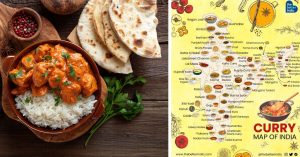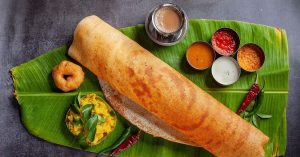At This Actress-Turned-Chef’s Vegan Cafe, Waste is Used in Unique, Eco-Friendly Ways
Actor turned vegan chef Raveena Taurani founded Yogisattva Cafe in Mumbai to create an eco-friendly and 100% plant-based model where all the waste is put to use, alongside experimenting with a variety of organic, gluten-free and vegan recipes.
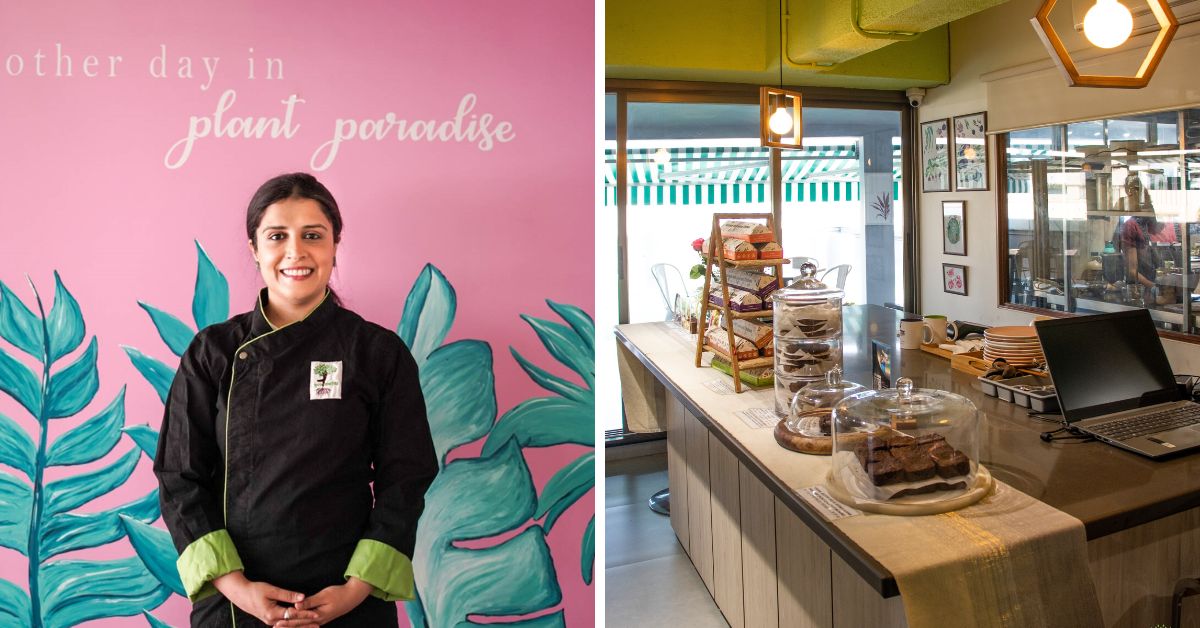
You might recognise former actor Raveena Taurani from the 2002 film Dil Hai Tumhara or Bang Bang (2014). Today, however, she is known better as a chef and founder-CEO of Yogisattva Cafe in Bandra.
The 31-year-old’s career path diverged after a spinal injury in 2014, she recalls. “Following the injury, I began my journey of pursuing yoga, through which I discovered plant based-food,” she recalls.
“As a child, you would never find me in the kitchen to cook anything. To eat — yes, but cooking was a definite no,” she tells The Better India.
Being a chef was never her original plan, but the injury pushed her to the field. She started enjoying making homemade vegan food, and pursued an advanced diploma course in plant-based cuisine.
“In 2015, the idea of putting together a 100 per cent vegan and gluten free cafe struck me. But we started as a small delivery kitchen from home. Veganism was still a new topic for Indians then and not many vegan restaurant options were available around,” she explains.
“By specialising in making healthy food tasty and accessible, I launched Yogisattva Cafe in Bandra in 2021. Here, we serve international cuisines as well as local tastes with a healthy twist in the ingredients.”
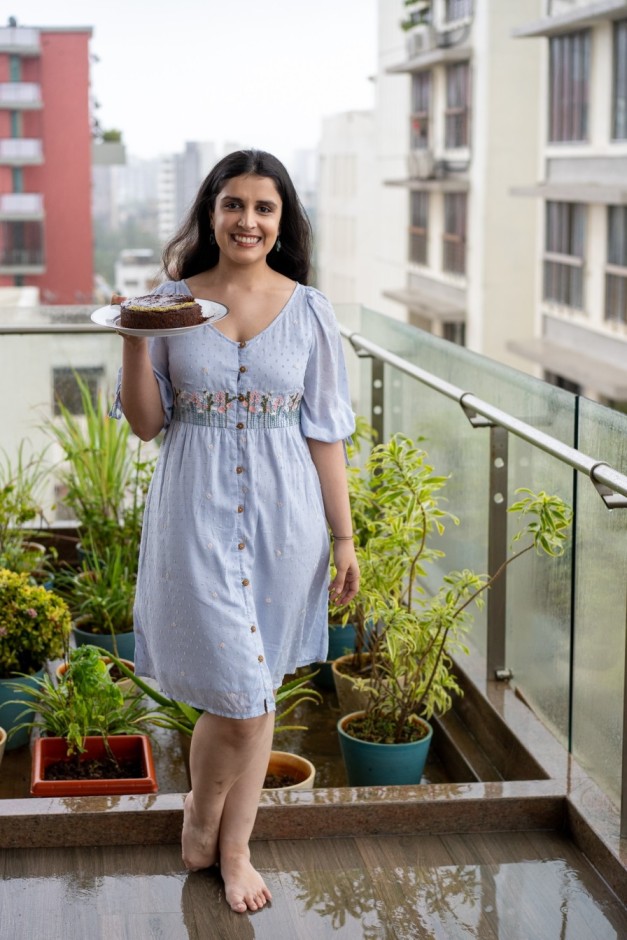
Repurposing veggie waste
It was through a newspaper article that Raveena came to know about composting and its benefits for the environment. She decided to set this up for her cafe.
Yogisattva recycles all of its wet and dry waste on a daily basis, she says. “While the wet waste is composted, dry waste like vegetable peels is fed to the cows on the streets. The leftover granules from their coffee machine work as a great fertiliser for the plants in the cafe. The remaining pulp from the almond milk goes into their granola,” says the chef.
“We also collaborate with an organisation called 5-Recycle to pick up all carton boxes, which come as part of delivery. These boxes are later recycled by the organisation,” she explains.
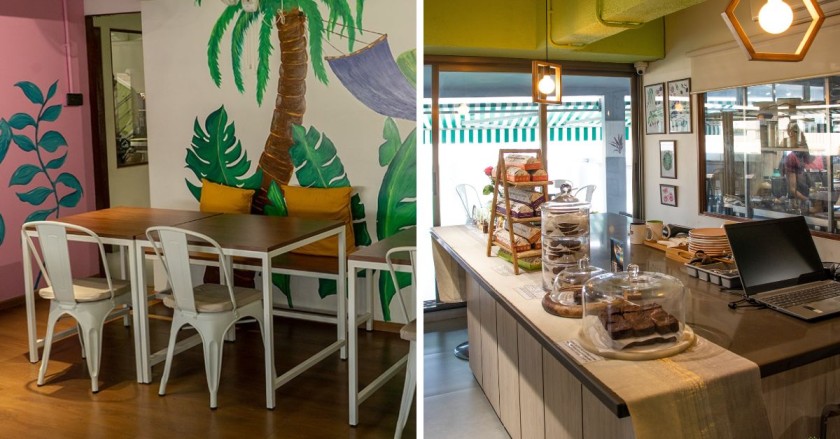
Apart from this, what makes the cafe completely eco-friendly is a set of small practices like not selling plastic bottled water, not cooking extra to avoid wastage and sharing seed cards.
“We give seed paper business cards to customers and clients. Instead of selling plastic water bottles we refill filtered water in glass bottles placed on all tables. Furthermore, we grow a lot of plants in and around the cafe to provide a better and green ambience,” she says.
“Most dishes in the cafe are made using organic fruits, vegetables, cold pressed oils and dry fruits. Around 80 per cent of these produce are directly sourced from farmers in Maharashtra,” Raveena notes.
“We follow a farm to fork model where organic produce is sourced from local farmers, thus avoiding pesticides and other harmful chemicals in the food,” she adds.
Favourites on the menu include raw vegan pizza, dal makhani, Indonesian tempeh curry, gnocchi and a vast list of guilt-free desserts. “Our bestsellers are Don’t Mezze With Me, Avocado Toast, Truffle Mushroom Pizza, Miso Ramen Curry, That’s a Wrap, Lebanese Buddha Bowl, Hazelnut Mousse, Brownie with Vegan Vanilla Ice Cream and Pistachio Baklava Bar with Vegan Pistachio Ice Cream.”
“We constantly experiment with international cuisines. Mexican, Lebanese and Vietnamese are the majors we focus on along with festive foods that include modaks and mithais,” Raveena says.
The menu changes according to the availability of certain ingredients. She adds, “It is like a reflection of the environment on your plate. It’s all about eating closer to nature, with seasonal, local and organic produce. The idea is to have what is available in nature at present and without much processing.”
“Each and every item on the menu is organic, vegan, gluten free and refined sugar free,” says Raveena.
“In the initial days, my customers were puzzled. They didn’t understand why I was choosing to make food without dairy. I would explain to them why some common ingredients are not used in certain dishes. But the best part is that now more and more people who really care about and practise veganism are coming in. But you don’t have to be a vegan to try our dishes. We ensure we provide meals that will not make you miss meat or animal-based products,” says the chef.
Customers of Yogisattva include corporate job holders, homemakers and working college students. There are 20 employees in the outlet and Raveena hopes to open a central kitchen close to the cafe and a delivery kitchen in South Mumbai soon.
“Since launching Yogisattva, I haven’t stopped learning. In the period between running a cloud kitchen and launching the cafe, I did several courses specifically in plant-based cuisines from Bali, America and England. This quest for knowledge in the field will continue in the upcoming years and I hope the idea of plant based food reaches more people by then,” she notes.
“The rooftop cafe, located on the 7th Floor of Pinnacle House in Bandra is also an excellent co-working space. They offer free WiFi and some great vegan coffee,” says Ritu Shah, a regular customer of Yogisattva.
Apart from the cuisines, the team also provides online cooking classes to anyone across the globe. “We conduct certified culinary courses, shorter cooking classes and private cooking lessons based on customer preferences,” says Raveena.
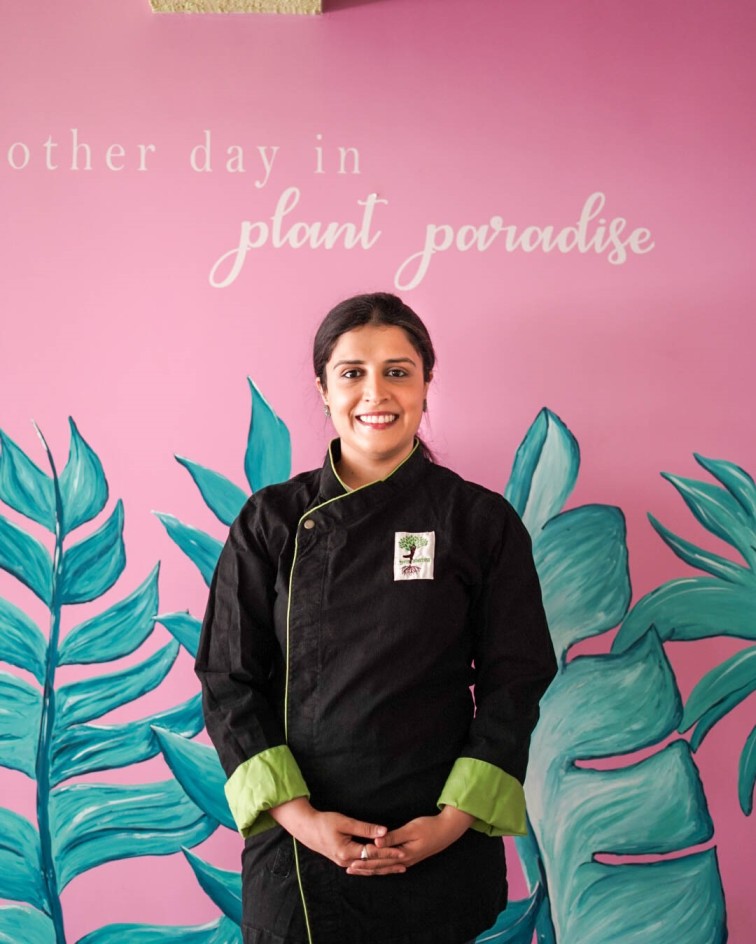
She continues, “In order to lower the carbon footprints of an individual, avoiding animal products is a big step. A plant-based diet requires only one-third of the land needed to support a meat and dairy diet.”
“I think it’s high time that we adopt a sustainable way of living given the rising global food and water security issues around the globe. I am not someone who would force people into veganism but I believe everyone, especially business organisations, can follow eco-friendly practices. Taking small but consistent steps in recycling and composting would be a great way to begin with.” If you found our stories insightful, informative, or even just enjoyable, we invite you to consider making a voluntary payment to support the work we do at The Better India. Your contribution helps us continue producing quality content that educates, inspires, and drives positive change. Choose one of the payment options below for your contribution- By paying for the stories you value, you directly contribute to sustaining our efforts focused on making a difference in the world. Together, let’s ensure that impactful stories continue to be told and shared, enriching lives and communities alike. Thank you for your support. Here are some frequently asked questions you might find helpful to know why you are contributing?

Visit their website here.
Edited by Divya Sethu; Photo credits: Raveena Taurani
This story made me
-
97
-
121
-
89
-
167




